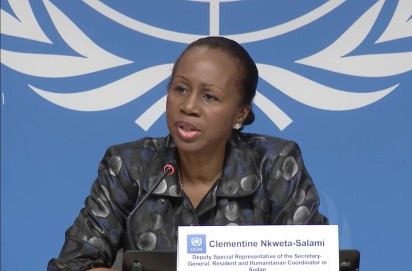The UN Resident and Humanitarian Coordinator in Sudan, Clementine Nkweta-Salami, has expressed profound sadness and frustration over the ongoing armed violence that is wreaking havoc on the city of Al Fasher in Sudan’s North Darfur State.
Nkweta-Salami said in a press statement on Monday that there could be no excuse for direct attacks on civilians, their assets and essential facilities such as hospitals.
“This is heartbreaking and must stop. There is no excuse for direct attacks on civilians, their assets and essential facilities such as hospitals. These are protected under the International Humanitarian law. Parties to the conflict must refrain from targeting the city,” she said.
Initial reports indicated that large-scale fighting escalated in El Fasher City last Thursday, threatening the lives of thousands of people, mainly in camps for internally displaced people. Healthcare facilities were also reportedly affected. The number of civilian casualties was yet to be established.
“These reprehensible attacks show the pointlessness of the armed violence in El Fasher. All parties to the conflict must uphold their obligations to the international humanitarian law and ensure civilians are protected from harm. These attacks in El Fasher violate every humanitarian principle,” added Nkweta-Salami.
The Sudanese conflict that started in April 2023, continues devastating lives, livelihoods and essential infrastructure. It pits the Sudanese Armed Forces (SAF) against the paramilitary Rapid Support Forces (RSF). The conflict has claimed thousands of lives and displaced thousands others, either internally or as refugees in neighboring countries.
El Fasher is home to hundreds of thousands of internally displaced people at risk of famine, including in the Zamzam camp where famine has been confirmed.
In addition, Sudan’s public health system has been devastated by the conflict with many facilities destroyed, looted, or abandoned, leaving more than five million people without access to healthcare services.




